Tag: Comfort Care
Articles about comfort care for the terminally ill patient seeing a good death.
Articles about comfort care for the terminally ill patient seeing a good death.

Caring for a terminally ill loved one at home is an incredibly challenging and emotional journey for family caregivers. This guide acknowledges the struggles you may face and offers compassionate solutions. It explores valuable resources, such as end-of-life doulas, PACE programs, and professional home care services, all designed to help ease your burden and provide support during this difficult time. You are not alone in this experience; there are ways to find relief and comfort as you navigate these profound challenges.

Legacy projects offer powerful pathways to closure for both patients facing end-of-life and their families. From memory quilts to ethical wills, these meaningful activities transform difficult goodbyes into lasting connections, reduce anxiety, and provide comfort during grief while preserving precious memories.
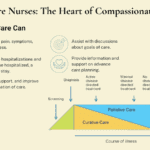
Palliative care nurses serve as the cornerstone of compassionate healthcare, providing comfort and support to patients with serious illnesses at any stage—not just at end of life. These dedicated professionals bridge the gap between medical treatment and holistic care, ensuring patients and families receive comprehensive support through their healthcare journey.

A new Age-Friendly Insights Poll reveals that adults 50 and older support palliative care once they understand what it offers. This article explores the poll findings, discusses the importance of palliative care education, and highlights key preferences of older adults regarding serious illness planning and care.
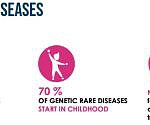
Explore the crucial role of palliative care in supporting patients with rare diseases. Learn how this specialized approach can enhance quality of life, manage complex symptoms, and provide essential support for patients and caregivers.
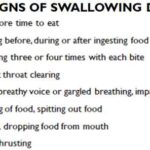
Learn about swallowing problems in dementia patients, including symptoms, risks, and management strategies for caregivers and healthcare professionals.
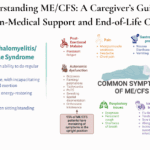
This comprehensive guide helps caregivers, families, and end-of-life professionals understand ME/CFS, providing practical tools for non-medical support. Learn about the disease trajectory from onset to end-of-life care, including when palliative and hospice care should be considered for optimal patient comfort and well-being.
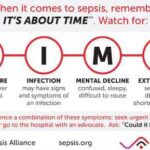
This comprehensive article explores bacteremia and sepsis in the elderly, examining prevention, early detection, and treatment. Understand the unique challenges and effective strategies for managing these conditions in older adults.
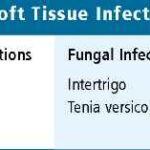
Discover comprehensive strategies for preventing, detecting, and treating skin and soft tissue infections in the elderly. This guide covers critical aspects, including hygiene practices, early signs of infection, and effective treatment options.

Learn essential strategies for preventing, detecting, and treating respiratory infections, such as pneumonia and influenza, in older adults. This comprehensive guide offers valuable insights for caregivers and healthcare professionals working with the geriatric population.
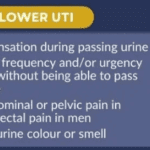
This comprehensive guide explores urinary tract infections (UTIs) in the elderly, covering unique challenges, prevention strategies, early detection methods, diagnosis, treatment approaches, and long-term management to ensure better health outcomes for older adults.
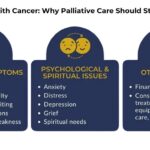
Discover why combining palliative care with cancer treatment from day one can transform your cancer journey. This guide explains how early palliative care provides expert symptom management, emotional support, and better outcomes while maintaining hope and enhancing quality of life.
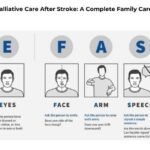
Discover how palliative care can transform the stroke recovery journey for patients and their families. This comprehensive guide explains the benefits, services available, and steps to access palliative care support throughout the United States.
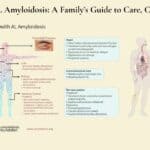
AL amyloidosis is an uncommon yet severe condition that impacts various organs. This detailed guide provides essential information for patients and their families regarding symptoms, disease progression, treatment options, and the timing of considering hospice care for their loved one.

Examine the profound impact of hospice care on patients, families, and the healthcare system. This article investigates the physical, emotional, and financial benefits of hospice care, emphasizing its crucial role in end-of-life care and overall healthcare efficiency.
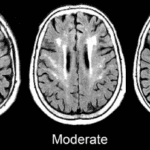
Caring for someone with Chronic Small Vessel Disease (CSVD) can be challenging, but with the proper knowledge and strategies, you can make a significant difference. This guide offers practical advice on creating a supportive environment, managing symptoms, and improving the quality of life for your loved one with CSVD.
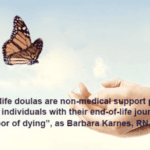
Explore the powerful combination of hospice services and end-of-life doulas in providing holistic care for those facing terminal illness. Learn how these two approaches complement each other to support patients and families through the end-of-life journey.

This guide helps hospice teams, caregivers, and families support loved ones with immunotherapy-induced tremors. Explore adaptive tools, tremor-reducing therapies, medication options, and practical care strategies to improve quality of life during hospice transitions.
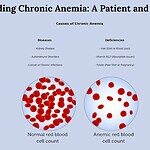
This guide explains chronic anemia in simple terms, covering symptoms, diagnosis, and treatments. Helps patients and families recognize signs and work with healthcare providers.

This article delves into the common medications that can lead to swelling in geriatric patients, with a focus on those receiving end-of-life care. It provides insights into prevention, management, and the importance of informed healthcare decisions.
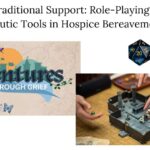
Blue Ridge Hospice's "Adventures in Grief" program uses tabletop role-playing games to help bereaved adolescents and young adults process loss. This article examines this innovative approach, its benefits for grieving individuals and caregivers, and how gamification principles could transform various aspects of hospice care.

Discover the art of crafting hospice prayers that resonate with patients’ beliefs, providing comfort and solace in their final journey. Learn from hospice professionals about personalizing this sacred support.
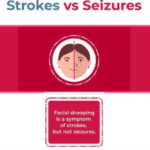
Learn how to recognize and respond to strokes and seizures quickly and confidently. This guide provides essential information on identifying symptoms, taking immediate action, and ensuring patient safety during these critical moments. Empower yourself with the knowledge to act swiftly and potentially save a life.

Understanding the nuances between a Cerebrovascular Accident (CVA) and a Transient Ischemic Attack (TIA) can be life-saving. This guide helps family members recognize signs, differentiate between CVA and TIA, and respond swiftly to ensure the best possible care.